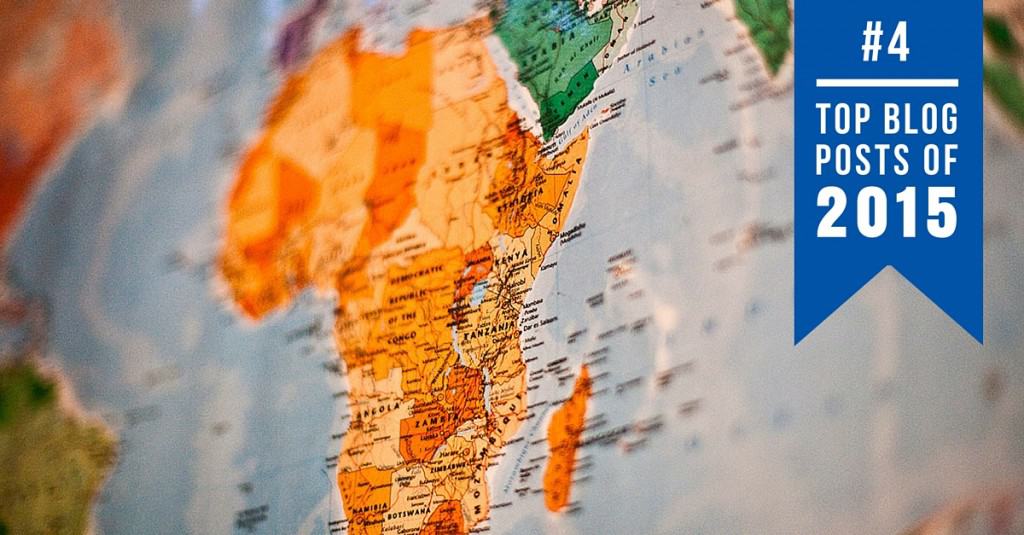As a U.S. citizen, I’ve heard many reactions to my nationality as I travel to other places. A few gems: “We love Americans!” “We hate Americans!” “You can print your own money at an ATM.” “You’re all fat.”
People have ample opportunities to see the United States in news and entertainment, so they have ample opportunities to form opinions of us — for better or for worse. It’s easy to latch on to one particular thing about a community or country and define its essence accordingly. I remember when I was in high school, someone heard where I went to school and asked me, “Are you all gang members there?” No, we weren’t. There were a couple of kids who liked to act like they were tough, but the vast majority of us were just ordinary kids.
It’s often lamented how the same thing has happened to an entire continent: Africa. We have heard the newsreel version of Africa and stereotyped one billion people in 53 diverse countries (including the surrounding islands) as sick or sad or violent. Non-profits are to blame, in part, because we focus so intently on the hurts that our organizations seek to help.
Who am I to presume to speak up for Africa, as if she needs my defense? I’ve traveled to only two countries within Africa. I am no expert, and I have no right. But as a writer for a non-profit who often writes stories about people living in East and West Africa, I feel it’s partly my responsibility to bring any balance that I can to our perceptions.
But in trying to show the amazing beauty, diversity and cultural richness of the continent, we can also stereotype in the other direction — creating a caricature of everyone on this continent as jolly and not recognizing that there are thousands of cultures on this vast land mass, some exuberant and some reserved. Or we can paint a picture of only the physical beauty of one section of Africa — giraffe on the savannah with acacia trees — while ignoring the high-rises of Lagos and the boulevards of Kinshasa.
So instead of praising Africa in generalities, which might sound pretentious and condescending anyway, I’ve come up with a handy guide to talking about Africa.
1.Let’s start talking about individual countries and communities. Not that these are homogenous either, but let’s do our research and speak in specifics. As we try to be specific, we’ll probably realize our own ignorance and be forced to learn more! And that’s always a good thing. Learning about the countries in which we work might be an easy place to start.
2. Don’t talk about Africans as victims, as powerless, or as unchanging. Would you want someone to talk about you like that? Besides, it’s not true. Read “The Changing Face of Africa” from Compassion Magazine to learn how the continent and its cultures are growing.
3. There is danger in telling only a single story. Nigerian novelist Chimamanda Adichie gave an insightful TED Talk about how a single story can lead to cultural misunderstanding.
4. Take a trip. I’ve visited Rwanda and Kenya and loved them both. One of my life-long goals is to return to Kenya with my husband. I would also love to visit Egypt, Ethiopia, Morocco, Botswana, Tanzania and Ghana someday. Let’s turn our mindset from considering Africa as a continent deserving our pity to unique places rich with things to discover.
5. Read! Though I have a degree in literature, I have never been required to read a single text by an African writer. This is an area in which I want to improve. Some places to start: Things Fall Apart by Nigerian author Chinua Achebe, Purple Hibiscus by Nigerian author Chimamanda Adichie, and Nervous Conditions by Zimbabwean author Tsitsi Dangarembga. I have also enjoyed learning through Africa Trek by French travelers Alexander Poussin and Sandra Poussin and The Number One Ladies Detective Agency by Scots author Alexander McCall Smith, who was born in modern-day Zimbabwe.
Just as not everyone in my high school was a gang member and not all Americans are fat, not all Africans are poor, violent or [enter your own perception here]. Let’s help change the discourse.
What countries within Africa would you like to visit? Do you have a book to recommend? Do you support any African-based businesses? What tips have I forgotten? Share them in the comments!

